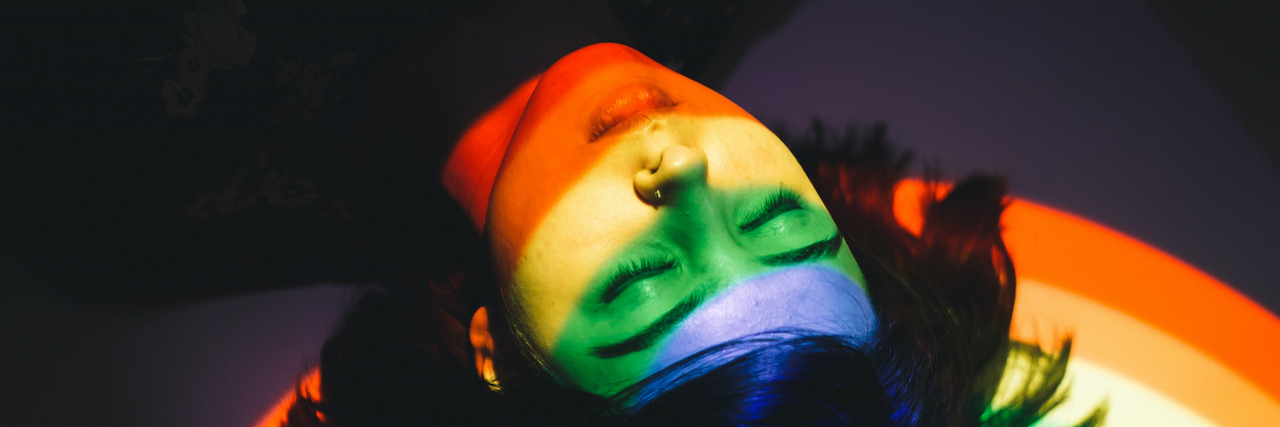I’ve been meaning to write this piece for a long time. Each time I sat down to type, I would immediately stop. Write about something else. Or nothing else. Nothing at all.
Today is different. Today is the day I write this piece, and hopefully share it with someone who… needs it.
In 2008, at the lovely age of 14, I found myself being plagued and bombarded with intrusive thoughts. Now, it didn’t happen overnight; in fact, I had been dealing with undiagnosed obsessive-compulsive disorder (OCD) likely all my life. What happened during my eighth grade year was that the content of the thoughts shifted from not just fears and worries about natural disasters and whether my family was safe; the content now included obsessive, intrusive thoughts with either sexual content, or me questioning my sexual orientation on an endless loop.
I was trapped in a nightmare, or so it felt. I think the most nightmarish thing about it was the fact that no one knew… the fact that I felt so ashamed and self-loathing, that I chose to confide in nobody for several more years.
I had compulsions that went alongside my obsessive thoughts. I knew they were irrational. This included knocking on wood in certain increments, googling my every question on the internet, repeating the same phrases over and over in my head, and squeezing my eyes shut until the thoughts went away (which rarely ever worked, as compulsions tend to worsen obsessive thinking and intrusive thoughts).
Sometimes I punished my body by fixating on my weight, the number on the scale, something that would eventually develop into anorexia. I struggled with co-morbid body dysmorphia and hated so many things about my appearance, ranging from my eyebrows and hair to my chest and stomach.
Now, while this sounds like your classic OCD story, there’s a little more to it I’d like to share. Mental illness (particularly OCD), I believe, thrives on resistance. The more one resists the thoughts, the stronger and louder they grow, yes?
What I learned was at the root of my OCD was more than just fear and a dysregulated basal ganglia (the part of the brain associated with the disorder)— I also hated myself. My body. My essence. Who I was.
This self-loathing… I hate to say it, but it lasted until quite recently, well over a decade from eighth grade. I struggled with intrusive thoughts about being gay or bisexual or questioning. I couldn’t stand the uncertainty, the unknown. I wanted to be straight so badly, the internalized homophobia roaring inside of me.
Now I know the truth at 27 years old— that maybe the best way to fight my OCD is to avoid labeling it with specificity at all. Perhaps I am not necessarily “gay or straight” the way my OCD wants me to say, no. Rather, I am a human who questioned their sexuality for a long time, and today, I am finally OK with the fact that I am member of the LGBTQIA+ community.
Some days I wonder which specific label fits best (bisexual? Pansexual? Asexual spectrum?) but I know that if there’s one way to piss off my OCD, it’s to say that I am just a person who loves other people and that I am “not straight”— for once in my life, this is finally an acceptable answer.
I have done tons of OCD treatment (including exposure response prevention therapy, transcranial magnetic stimulation and medications) as well as seven years of work on self love, acceptance and trauma, to get here. My experience is not indicative of anyone else’s — a lot of people obsess about the sexuality that they “aren’t” (ie., someone who is straight obsessing that they are gay), but in my case, I think the answer was less black and white.
I also question my gender identity at times too, but today I am realizing that perhaps for once my OCD is not driving the car, that some level of questioning and fluidity is healthy and normal. And that, that feels amazing.
In summary, I am honored to be part of the LGBTQIA+ community as well as relatively in remission from my OCD. I am no longer tortured and plagued by obsessive thoughts and compulsions at a near constant rate. I am honored to be me, and hope that I can promote a powerful message to those who are struggling with OCD, their identity or a combination. It can get better.
Getty image by Farhan Monir Hussain / EyeEm

